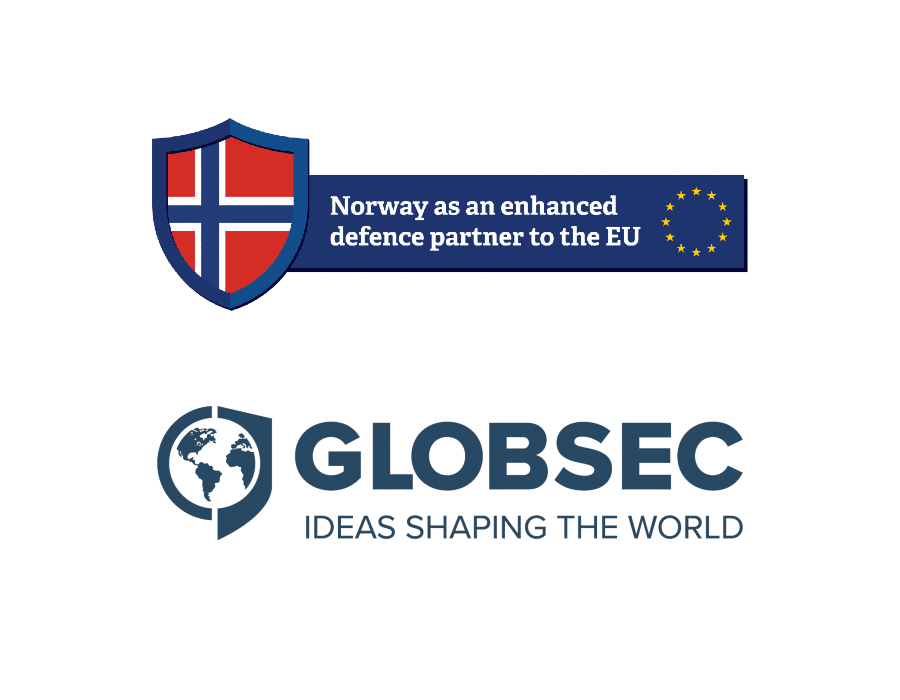Third party access to European Defence Initiatives in the Post-COVID-19 World

The impact of the COVID-19 pandemic on European defence cooperation, EU defence ambitions in the next EU budget for 1021-27, and third-party cooperation were the main topics discussed during the closed doors debate on European Defence Cooperation in the Post-COVID 19 world.
On July 15, 2020, GLOBSEC Policy Institute held an exclusive closed-door online roundtable entitled: “European Defence Cooperation in the Post-COVID-19 World”, organised within the framework of the project titled “Enhanced European Opportunity Partners in the EU´s Defence and Security Initiatives: Study case of Norway”, funded by the Norwegian Ministry of Defence.
The COVID-19 pandemic has impacted every sector and every business in Europe, and European defence initiatives are no exception. The possibility of a future economic crisis increases concerns about fiscal pressure and the probabilities of a cut on the next EU budget on defence.
This pandemic can, however, be turned into an opportunity, forcing Member States to increase coordination and collaboration, making the best use of the EU defence fund for cost-effective solutions. There is a need for building defence capabilities and coordination. This could be done by following a trajectory of growth, that is, by increasing spending on the defence budget. The EU defence fund could not only help the defence industry flourish but also aid industrial recovery through research, development, and innovation. This, in turn, could be used for civilian industries supporting the development of EU defence capabilities.
In general, the pandemic highlighted several vulnerabilities, as well as the need for increased EU cooperation and the use of financial and technical security instruments acting inside the EU, its neighbourhood and beyond. Concerns for the future are the risk of increase in protectionist measures and more domestically focused countries, which will lead to increased defence spending on a national level but not at the EU level.
It is worth mentioning that Member States which aim at developing EU defence do not question the relevance of NATO’s position, which has been recognized as a cornerstone of EU security. For this reason, third-party cooperation should be strengthened and clarified, according to country characteristics and the type of relation with the EU and its members.
The European Union should consider allowing inclusive third-party involvement, rather than considering it an exception, as it is unthinkable to defend the EU without defending the entire geographical European area. Furthermore, third-party inclusion should be used to steer the European Defence Fund (EDF) to fill the real gaps in the capabilities of development plans. The EDF should aim much higher given the possibilities, aiming for a budget reengagement of Member States. With a political will, there are still many goals that could be achieved. The EU Defence Fund together with intergovernmental mechanisms could help the EU defence industry to strengthen and focus efforts on filling the gaps in technological and industrial capability.
The discussion identified several factors that will be able to shape the European defence industry post-COVID-19. Hence it is important for the EU to incorporate European defence into its post-pandemic recovery plan in order to achieve the goal of greater strategic autonomy and a more efficient level of cooperation in these structures.
This exclusive closed-door online roundtable has been warmly welcomed by various experts on European defence. The roundtable was composed of 35 specialists from various public and private sectors dealing with European defence. In terms of public officials, there were experts from European Defence Agency, Ambassadors from the Permanent Representation to the European Union of various member states, and officials from NATO, as well as officials from Ministries of Defence or Ministries of Foreign and European affairs. Regarding the private sector, numerous researchers and business representatives participated as well. Researchers from various international organisations were involved, such as the Centre for European Reform, Chatham House, the EU Institute for Security Studies, the Norwegian Institute of International Affairs, the International Centre for Defence and Security, the Norwegian Defence Industry, with others represented online